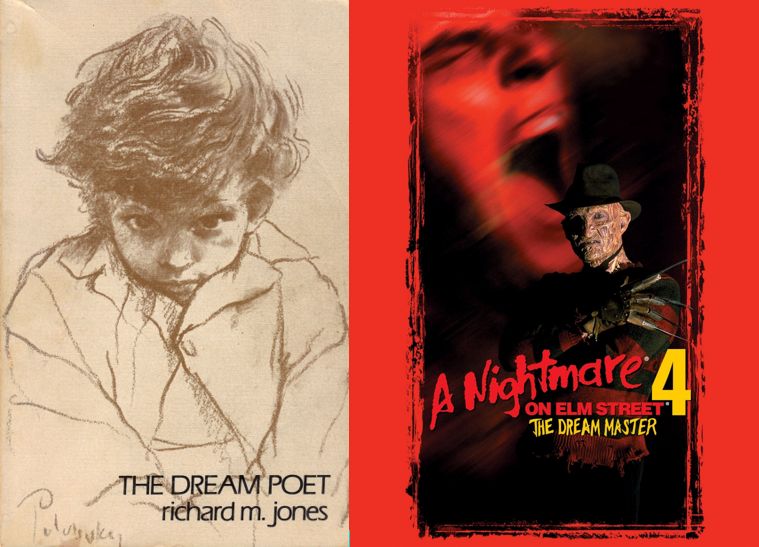I’m kind of tired of talking about “Nightmare On Elm Street 4: The Dream Master”. Most of the questions I get about it are the same ones I’ve been answering for decades:
Do you really do karate? – No. I learned it for the film and then they asked me to abandon this brief training and fall back on big round house punches that look better on film.
Was it scary being on the set? – Only because the director was constantly hitting on my girlfriend (Tueday Knight) and doing what he could to exclude me from cast events so he could be alone with her.
What’s Robert Englund like? – He’s a great raconteur and one of the best parts of shooting the film was sitting with him in make-up and asking him questions about 1970’s Hollywood.
Nobody ever asks the one question I’d be interested in discussing which is what it’s like to be the child of a noted author and academic on the subject of dreams who finds himself cast in the most famous dream-themed film franchise of all-time? I have a lot of answers but I’ll save them for a future interviewer. In the mean time, I will share a little about my dream psychologist dad.
His name was Richard Matthew Jones. In 1979, when I was ten years old, Schenkman published his penultimate book “The Dream Poet” about the dream seminars he led at The Evergreen State College while I was growing up. The book was dedicated to me and my brother Gabriel. My father’s previous works included “The New Psychology of Dreaming”, “Ego Synthesis In Dreams” and “Fantasy And Feeling In Education”. In 1989 my father began displaying signs of dementia similar to the symptoms of Alzheimer’s without an actual Alzheimer’s diagnosis. By 1992 he had been institutionalized after being brutally taken advantage of by an in-home care provider who robbed him and paid homeless kids to look after him, which they didn’t. This led to my departure from Hollywood to do my best to oversee his care in Olympia until he died in 1995. For a brilliant academic who worked at the highest echelons of the psychological field at Stanford, Brandeis & Harvard to find himself the victim of abuse and neglect from the lowest rung of the field was a cruel irony that I will never be able to fully reconcile or forgive myself for allowing to happen.
When I was cast in Nightmare On Elm Street in 1988 did I recognize the synchronicity between its themes and my father’s work with dreams? I did not and, to be honest, I’m not sure when it struck me. Perhaps when I began to realize that The Dream Master was not, as I initially thought, a minor blip on the way to an important acting career, but was in fact, the role that would define me to most people.
There was an event in Hollywood a few years back where the entire cast of The Dream Master, along with producer Bob Shaye and director Renny Harlin, gathered to celebrate the thirtieth anniversary of the film. I tried to talk about this synchronicity onstage when we were all gathered together but I was interrupted by Renny who said. “Yeah, yeah, yeah, enough about your father…” before launching into a self-aggrandizing talk about his own genius as a filmmaker. It was just like old times…a nightmare, but maybe he was right. Maybe my synchronicity with this film is as interesting to fans of the series as questions about karate are to me.
If you’re coming to this site looking for Nightmare talk, this might be all you get.
